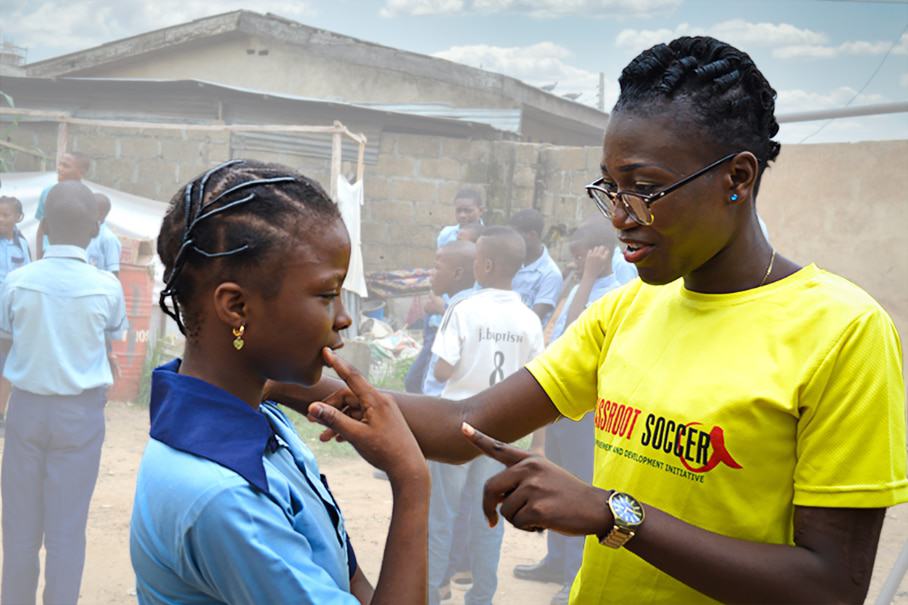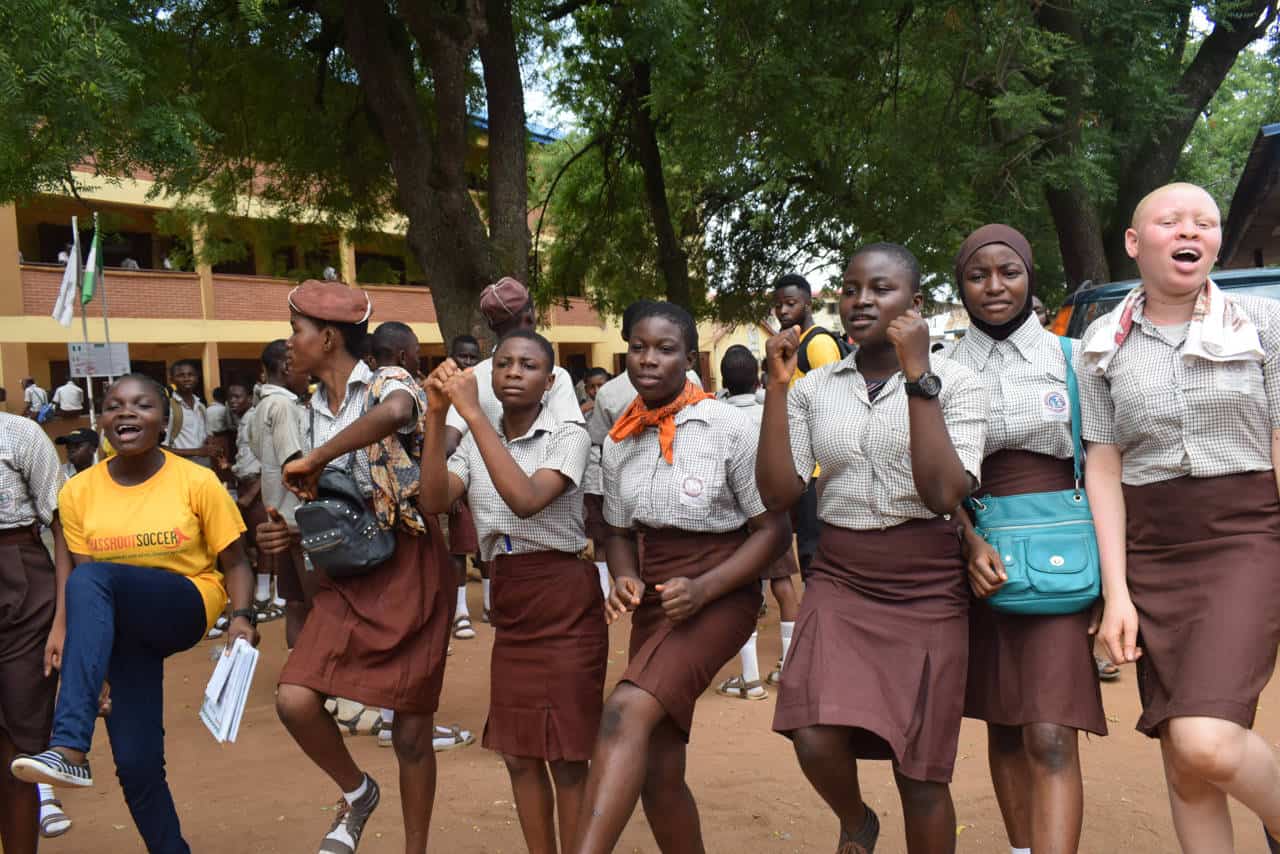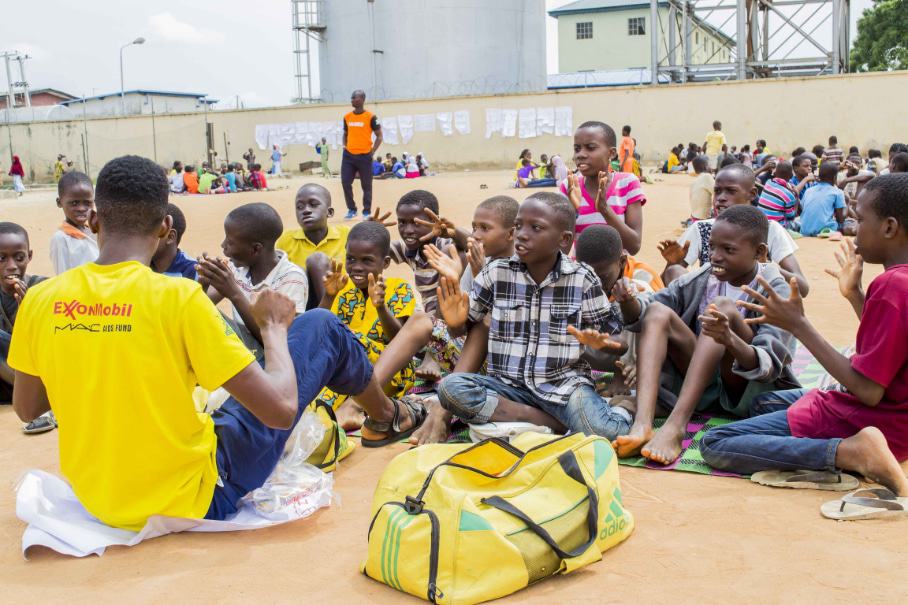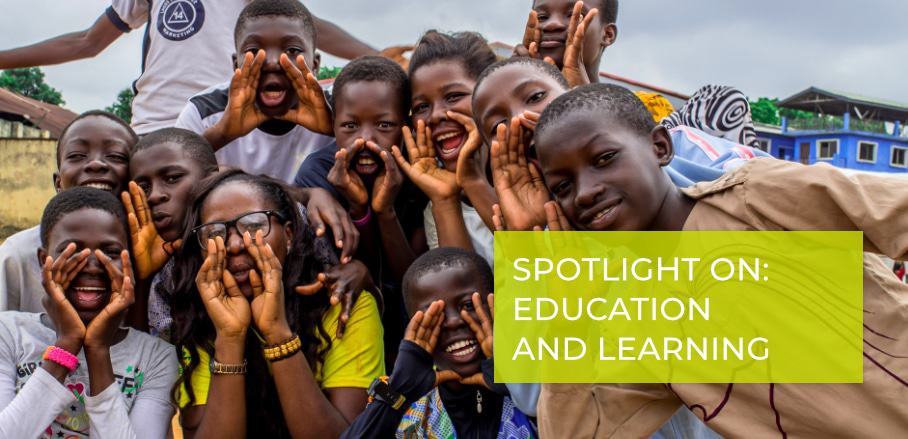Achieving Adolescent Sexual and Reproductive Health Rights in Lagos State
Youths in Lagos face significant challenges regarding access to quality sexual and reproductive health education and services. Since 2011, Youth Development and Empowerment Initiative (YEDI), an adolescent health organisation, has been working to improve the health and wellbeing of adolescents and their communities in Nigeria.
In most Nigerian communities, it is taboo to discuss sex with adolescents. Young people are forbidden from asking any questions or speaking about their sexuality with adults, even if they are their parents. This attitude is perhaps the greatest hindrance to adolescents making informed choices about their sexuality. Additionally, many young people who have the necessary knowledge are unable to utilise it due to the same social norm: an adolescent who requests a condom, for instance, will most likely be judged and stigmatised by the service providers.
Challenges to Achieving Adolescent Sexual and Reproductive Health Rights
Young people’s lack of comprehensive knowledge of sexual and reproductive health rights (SRHR) and lack of access to products and services come at enormous costs, with girls and adolescents from poor communities being the most affected. According to the Nigeria Demographic and Health Survey 2018, 19 per cent of Nigerian teenage women aged 15 to 19 have begun childbearing; 14 per cent have given birth, and 4 per cent are pregnant with their first child. This rate is higher in rural areas at 32 per cent, where poverty and illiteracy are worse. Other issues include unsafe abortions, sexually transmitted infections (STIs) and HIV. Also, HIV prevalence among adolescents in Nigeria is estimated at 3.5 per cent, the highest in West and Central Africa.
Responding to the need to improve ASRH outcomes for young people in schools, the federal government initiated the Family Life and HIV Education (FLHE) curriculum in schools for pupils aged 10 to 17. However, they only focus on abstinence and do not factor in adolescents who are out of school. This focus is dangerous, as many adolescents in school are already sexually active. A 2012 study showed that while the median age of sexual debut in Southwest Nigeria stood at 17 (males) and 18 (females), one in five adolescents have had sex before the age of 16.

Coach and participant © YEDI
Empowering Youth: Hello Lagos Centres
Acknowledging the high social cost of poor ASRH outcomes as well as the shortcomings of federal interventions, in 2002, the Lagos State Government established an integrated youth-friendly centre, the Hello Lagos centre. The centre provides free SRH services for young people in a safe and confidential environment.
Since 2015, YEDI has partnered with the Lagos State government and the United Nations Population Fund (UNFPA) to manage seven of the Hello Lagos centres: four Young Moms clinics and three youth-friendly centres. YEDI’s role in the programme includes facilitating the provision of youth-friendly services, including for pregnant girls, young mothers as well as in-school and out-of-school youth. Over 716 pregnant adolescent girls have benefited from services at the Young Moms clinics, ranging from pregnancy tests, HIV counselling and testing, prevention of mother-to-child transmission of HIV (PMTCT), free ultrasounds, routine blood tests, postpartum family planning, vocational skills training, and referral services to secondary healthcare facilities.
Happiness Eboh is one of the young mothers who has benefitted from the Young Moms clinic. Pregnant at 16, Happiness suffered discrimination and physical abuse even at home, while living with her parents in Ajegunle, a slum community in Lagos. Apart from the prenatal and post-natal services she accessed for free at the clinic, Happiness also benefitted from digital skills training, which was provided for vulnerable young moms. “This project has helped reduce gender-based violence because after this program you will have no man intimidate you because you are relying on them for money”

Girls in school © YEDI
SKILLZ Development in Youth-Friendly Spaces
YEDI’s flagship project, the SKILLZ programme, in partnership with Grassroot Soccer, is another ASRH intervention implemented in Lagos and four other states in Nigeria. The project leverages the convening power of sports and football to capture the interest of adolescent boys and girls and employs football metaphors to communicate and educate them in cohorts through games and learning sessions. The programme also expands access to free HIV counselling and testing, distribution of products such as condoms, and offers referral services based on need. In 2018, GIZ supported the implementation of the BMZ SKILLZ Girls project which aimed to reduce the spread of HIV, STIs, and unplanned pregnancy among adolescent girls. The project empowered 2002 girls with comprehensive knowledge on SRH, HIV, and STI prevention in Lagos, Akwa Ibom, Ogun state, and the Federal Capital Territory (FCT), establishing safe spaces for open discussions on SRHR and enhancing leadership and life skills.
Since the initiation of the SKILLZ programme in 2011, over 250,000 young people between 10 to 24 years of age have been reached across the project locations in Nigeria, both in school (90 per cent) and out of school (10 per cent). 154,923 adolescents were reached in Lagos state during this period. Working with trained SKILLZ community peer mentors as coaches, the programme essentially builds capacity on ASRHR and leadership and creates access to free ASRH services and products.
One of the beneficiaries of the SKILLZ program, Bola, is just 10: “People used to look down on me, thinking I am done for, but now they can see that I am a game-changer in my community” he says. Bola is just one of the thousands of adolescents who now have greater self-esteem and can make better choices regarding their health and wellbeing because of participating in the SKILLZ program. Bola’s SKILLZ coach, Lucky, 24, who was once a participant of the programme, says he opted to be a SKILLZ coach because he felt an urge to help more young people in his community to have the same knowledge that he has.

Community engagement © YEDI
Conclusion
Provision of SRH education and access to contraceptive services can help to significantly reduce unplanned pregnancies and other complications associated with pregnancy among adolescents. Considering that existing ASRH programmes in Lagos are skewed in favour of young people in schools, evolving approaches and ASRH programmes that effectively cover the needs of adolescents that are out of school, particularly street-involved young people (SIYP) in Lagos, is imperative. Expanding interventions such as YEDI’s SKILLZ programme and the Hello Lagos centres to more communities in the metropolis, especially the slums and other underserved communities, is key in addressing the barriers of poor comprehensive knowledge and ASRH services in Lagos.
- Achieving Adolescent Sexual and Reproductive Health Rights in Lagos State - 18. January 2022
